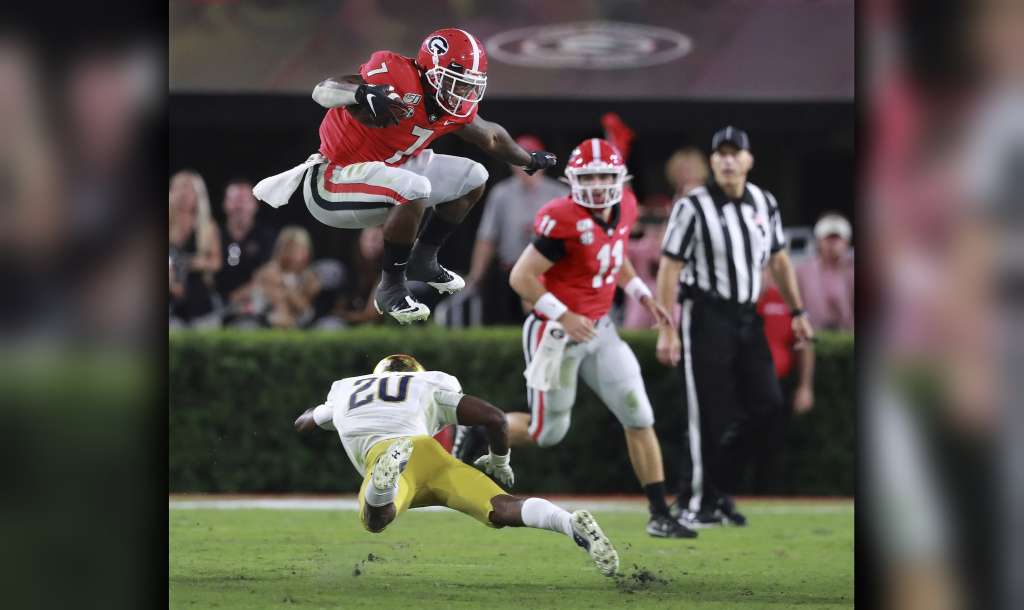(CNN) — California Gov. Gavin Newsom passed Senate Bill 206, also known as the Fair Pay to Play Act, into law Monday. The law allows college athletes to profit from their name, image and likeness.
The bill will go into effect in 2023, and if the bill survives the expected court challenges, it could reshape the NCAA’s business model.
The formal signing of the bill was done on Uninterrupted’s show “The Shop,” which is hosted by NBA superstar LeBron James.
“This is a game changer for student athletes and for equity in sports,” said James. “Athletes at every level deserve to be empowered and to be fairly compensated for their work, especially in a system where so many are profiting off of their talents.”
The Fair Pay to Play Act allows college athletes in California to sign endorsement deals; earn compensation based on the usage of their name, image and likeness; and sign all types of licensing contracts that would allow them to earn money.
These college athletes would also be able to hire an agent licensed by the state to represent them in any deals.
California member schools will arguably have an advantage in recruiting athletes, as they are allowed to profit from their name, image and likeness.
And now that California state law is at odds with the policies of the NCAA, member schools may have to choose between defying or leaving the organization — or the NCAA will have to change its rules.
“It seems unlikely that the NCAA would terminate the memberships of California colleges on account of following state law,” Sports Illustrated legal analyst Michael McCann wrote in May. “After all, the NCAA profits considerably by having member schools in the state with the highest GDP and largest population.”
To avoid losing those schools, the NCAA will have to either create a separate set of rules for member schools in California, or allow all college athletes to benefit from the same rights bestowed on athletes in California, McCann said.
“Collegiate student athletes put everything on the line — their physical health, future career prospects and years of their lives to compete,” said Gov. Newsom on “The Shop.” “Colleges reap billions from these student athletes’ sacrifices and success but, in the same breath, block them from earning a single dollar. That’s a bankrupt model — one that puts institutions ahead of the students they are supposed to serve. It needs to be disrupted.”
The debate over NCAA amateurism and the money that the NCAA and schools generate through college athletic programs has raged on for years. Current NCAA amateurism rules are put in place to distinguish college athletes from professional athletes.
For the 2017 fiscal year, the NCAA reported $1.1 billion in revenue. Considering all the money that these athletic programs generate for both the NCAA and each of the schools, critics have argued that students should be able to profit off the revenue that they help generate.
The NCAA operates as a nonprofit organization.
For its part, the NCAA says it’s looking at next steps.
“As a membership organization, the NCAA agrees changes are needed to continue to support student-athletes, but improvement needs to happen on a national level through the NCAA’s rules-making process. Unfortunately, this new law already is creating confusion for current and future student-athletes, coaches, administrators and campuses, and not just in California,” the NCAA said in a statement.
“We will consider next steps in California while our members move forward with ongoing efforts to make adjustments to NCAA name, image and likeness rules that are both realistic in modern society and tied to higher education.”
The-CNN-Wire™ & © 2024 Cable News Network, Inc., a Time Warner Company. All rights reserved.

